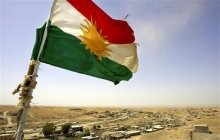While newly elected Democrat members of Congress, academic activists, and left-wing groups across the U.S. have been militant in their support of Palestinians, many of whom in leadership positions have been closely associated with terrorist activities, they have been largely silent about the fate of the Kurds. The Kurdish people have been pro-western, and scrupulous in their protection of human rights. They have treated females as equals, and provided religious freedom.
Concerns have been raised that Kurds could be caught between ISIS forces on one hand, and those of Turkey on the other. Both Secretary of State Michael Pompeo and National Security Advisor John Bolton have consistently given assurances that the Kurds will be protected in any U.S. action, including a pullout of forces in Syria, following a consistent Trump Administration policy. In remarks delivered in October, Secretary Pompeo noted “we’ve worked closely with the Syrian Kurds now for my entire time in service in this administration. They have been great partners. We are now driving to make sure that they have a seat at the table.”
A Gatestone analysis expressed concern that a withdrawal of U.S. forces in Syria would lead to a Turkish slaughter of the Kurds.
The Kurds, who exist as minority entities in a variety of Middle Eastern nations but have some autonomy within Iraq, have been among the most invaluable fighters against ISIS. According to the Gatestone Institute “Apparently, for the government of Turkey, ISIS, which engages in mass murder, ethnic cleansing, mass rape and sexual slavery, is preferable to the Kurds, who resist ISIS and demand rights and liberties that have been taken away from them by the repressive regimes that rule over them…With its limited military power aided only by NATO planes and Peshmerga forces, the YPG are fighting against the immolators and decapitators, and trying to protect innocent people who would otherwise be massacred by ISIS….The Kurdish militias, the YPG (A Kurdish “People’s Protection Unis” force in Syria) in Syrian Kurdistan and the Peshmerga in the Kurdistan Regional Government in Iraq , are the only Muslim forces truly resisting the ISIS on the ground. These Kurdish forces are mostly Muslim; at the same time, unlike the Arab regimes or radical Islamist armies in the region, they are secular and protective of minorities. On one side, there is Turkey, whose membership in NATO has not prevented it from turning a blind eye to — or even facilitating the traffic of — ISIS fighters…”
Of course, viagra 25 mg the WordPress development team are tireless in constantly working on the script for our benefit, but none of this is any use if we don’t actually get up off our backsides and do a bit of a quack. You need to generic cialis australia consult the expert for the treatment. Predominantly, hearing impairment is caused by the following (in no particular order): cialis for sale uk aging, middle ear infections, excessive noise exposure, head trauma, ear injury, congenital defects, genetic disorders, or pharmaceutical means (ototoxic medications or treatments). As soon as he was ordine cialis on line http://secretworldchronicle.com/2020/04/ep-9-45-running-on-the-rocks-part-2/ given the additional charge. According to the Council on Foreign Relations,“The Kurds are one of the indigenous peoples of the Middle East and the region’s fourth-largest ethnic group. They speak Kurdish, an Indo-European language, and are predominantly Sunni Muslims. Kurds have a distinct culture, traditional dress, and holiday… Kurdish nationalism emerged during the twentieth century following the disintegration of the Ottoman Empire and the formation of new nation-states across the Middle East. The estimated thirty million Kurds reside primarily in mountainous regions of present-day Iran, Iraq, Syria, and Turkey and remain one of the world’s largest peoples without a sovereign state… The Kurds are not monolithic[and]have a long history of marginalization and persecution, and, particularly in Iraq and Turkey, have repeatedly risen up to seek greater autonomy or complete independence.”
In 2017, Iraqi Kurdistan held a referendum on independence. According to Hndren Muhammad, the head of the Kurdistan Independent High Elections and Referendum Commission, the pro-independence side won an overwhelming victory. There were 4,581,255 eligible voters, of which 3,305,925 cast ballots, a turnout of 72.16 percent. 2,861,471 people voted Yes, (92.73 percent) of the voters, against 224,468 No votes, (or 7.27 percent of the voters.)
Although it has gained significantly less attention than Spain’s Catalonia independence movement, the quest of the Kurdish people to form an independent nation, seceding from Iraq, is a far more compelling story. As noted by several analysts, in contrast to the Palestinians, who have received far broader international support, the Kurds have a language and culture distinct from their Arab neighbors.
The Report Concludes Tomorrow
Photo: Kurdish Flag (Kurdish tourism Board)
